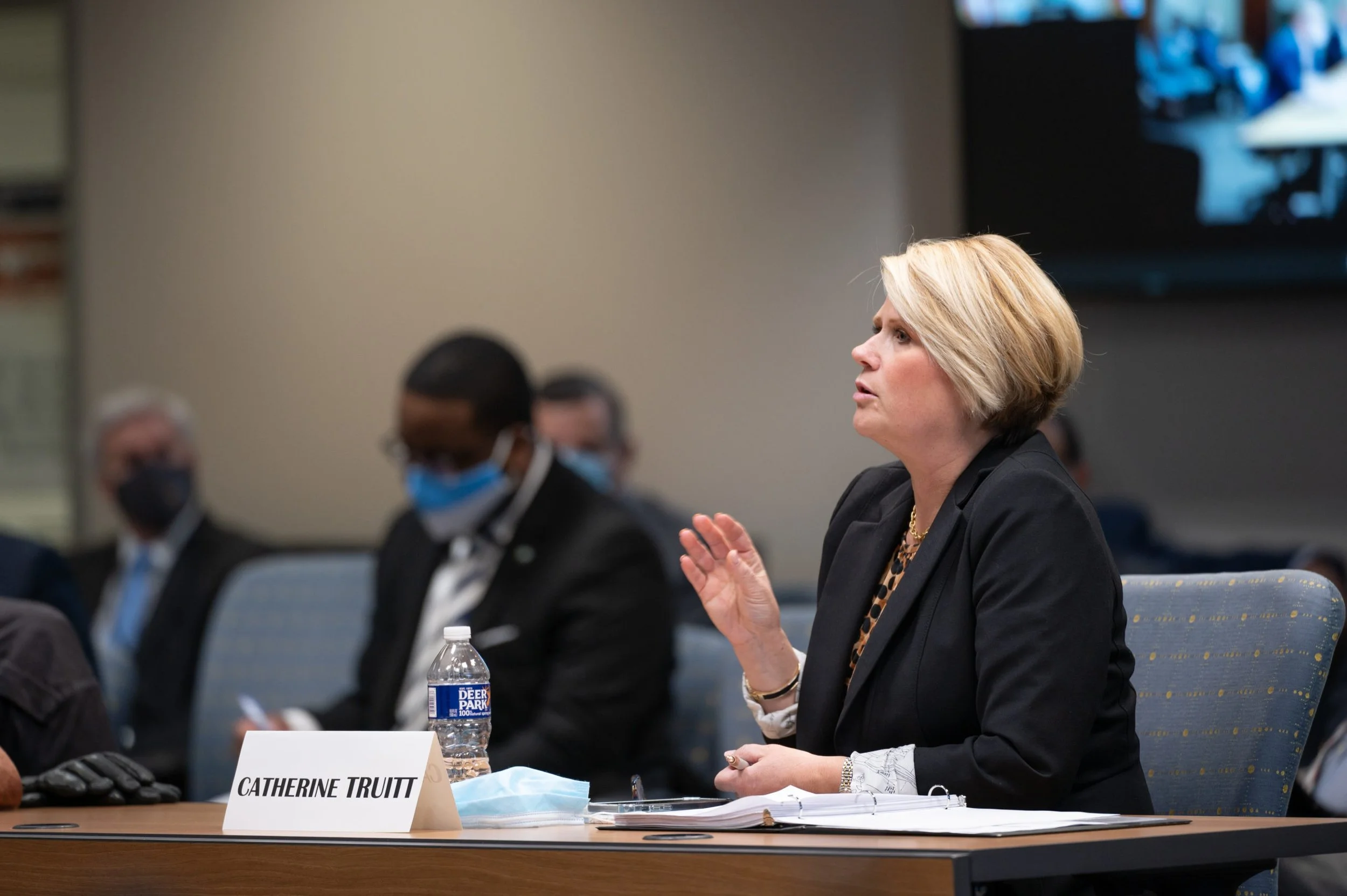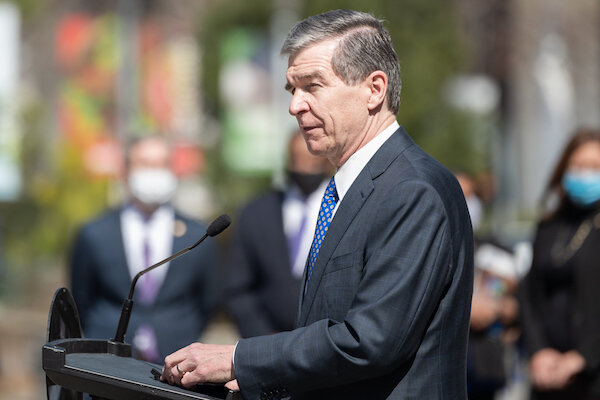Preliminary results from the North Carolina 2024 General Election show a strong voter turnout, with 67.01% of registered voters casting ballots. As of 11:42 p.m. on election night, 92.36% of precincts (2,455 out of 2,658) have reported results, reflecting over 5.2 million votes.
All tagged council of state
John Hood: Labor Race Draws Four GOP Candidates
The commissioner of labor is one of 10 independently elected members of the Council of State, which constitutes the executive branch of North Carolina’s government.
Record businesses growth, avian bird flu focus of April Council of State meeting
New business growth in North Carolina shows no signs of stopping according to Secretary of State Elaine Marshall. “Nothing has slowed down. In fact, it has accelerated,” she said at the Tuesday, April 4 Council of State meeting.
Council of State talks education, getting students ready to work
Catherine Truitt is concerned the state isn't doing enough to prepare students to work if they choose not to go to college after high school. As the state's superintendent of public instruction, Truitt raised her concerns at the Council of State meeting on Tuesday, Feb. 1, saying the DPI is tackling the problem in a project with the N.C. Chamber of Commerce to elevate new K-12 Workforce goals.
Cooper vetoes bill that would limit his powers, those of his successors
Gov. Roy Cooper, a Democrat, has vetoed a bill to limit his powers as a governor, as well as the power of his successors. House Bill 264, Emergency Powers Accountability Act, would have required that the governor receive concurrence from the 10-member elected Council of State for an emergency declaration of more than seven days, and legislative approval for it to extend beyond 45 days.
General Assembly passes measure to rein in a governor's emergency powers
The N.C. House in a concurrence vote passed House Bill 264, Emergency Powers Accountability Act, 66-44, on Wednesday, Oct. 20. Specifically, the legislation requires the governor to get concurrence from the Council of State for an emergency declaration lasting more than seven days.
Senate votes, 27-15, to limit governor's emergency powers
The state Senate has voted again, 27-15, to place new limits on the governor's emergency powers. The Senate's endorsement of the measure returns the issue to the state House.
The political parties split on House Bill 264, with Republicans voting yes and Democrats voting no.
Governor Cooper signs executive order providing flexibility for certain law enforcement training classes
Governor Roy Cooper signed an Executive Order providing flexibility for certain law enforcement training classes to continue operating during the pandemic and ensure continuity in the training for current and new law enforcement in North Carolina.
Cooper urges Council of State members to ‘push vaccines as hard as you can’
On the heels of a new executive order requiring state employees to get the COVID-19 vaccine or be required to wear a mask and submit to weekly testing, Gov. Roy Cooper is urging other members of the Council of State to push their own staffs to get vaccinated.
State eviction moratorium to expire this week
The state moratorium on evictions expires June 30, 2021, after being extended twice during the COVID-19 pandemic. First enacted by an executive order from Gov. Roy Cooper in October 2020, and twice extended by a vote of the Council of State, the government order prevented property owners from enforcing eviction due to nonpayment of rent.
Republican Council of State members revoke state evictions protections effective July 1
The state evictions moratorium will end July 1 after Republican members of the Council of State rejected a one-month extension, which would have aligned with the national CDC evictions moratorium through July 31.
Council of State members considering evictions moratorium extension
Following the CDC’s decision to extend its national evictions moratorium, Governor Cooper on Monday asked for the necessary concurrence from the Council of State to extend the evictions moratorium order.
Treasurer Folwell Calls on Governor to Let Executive Order 206 Expire
State Treasurer Dale R. Folwell, CPA, called on Gov. Roy Cooper to allow Executive Order 206 to expire on June 30. The order was originally issued in October 2020 and most recently extended in March of this year. It is based on a Centers for Disease Control and Prevention national moratorium issued last fall. Treasurer Folwell supported the original order but did not support the three extensions and asks that the executive order be allowed to expire at the end of the month.
Senate advances bill to rein in Governor's emergency powers
The Senate Judiciary Committee today approved legislation sponsored by Sens. Bill Rabon (R-Brunswick), Jim Burgin (R-Harnett), and Carl Ford (R-Rowan) to rein in Gov. Roy Cooper's emergency powers.














